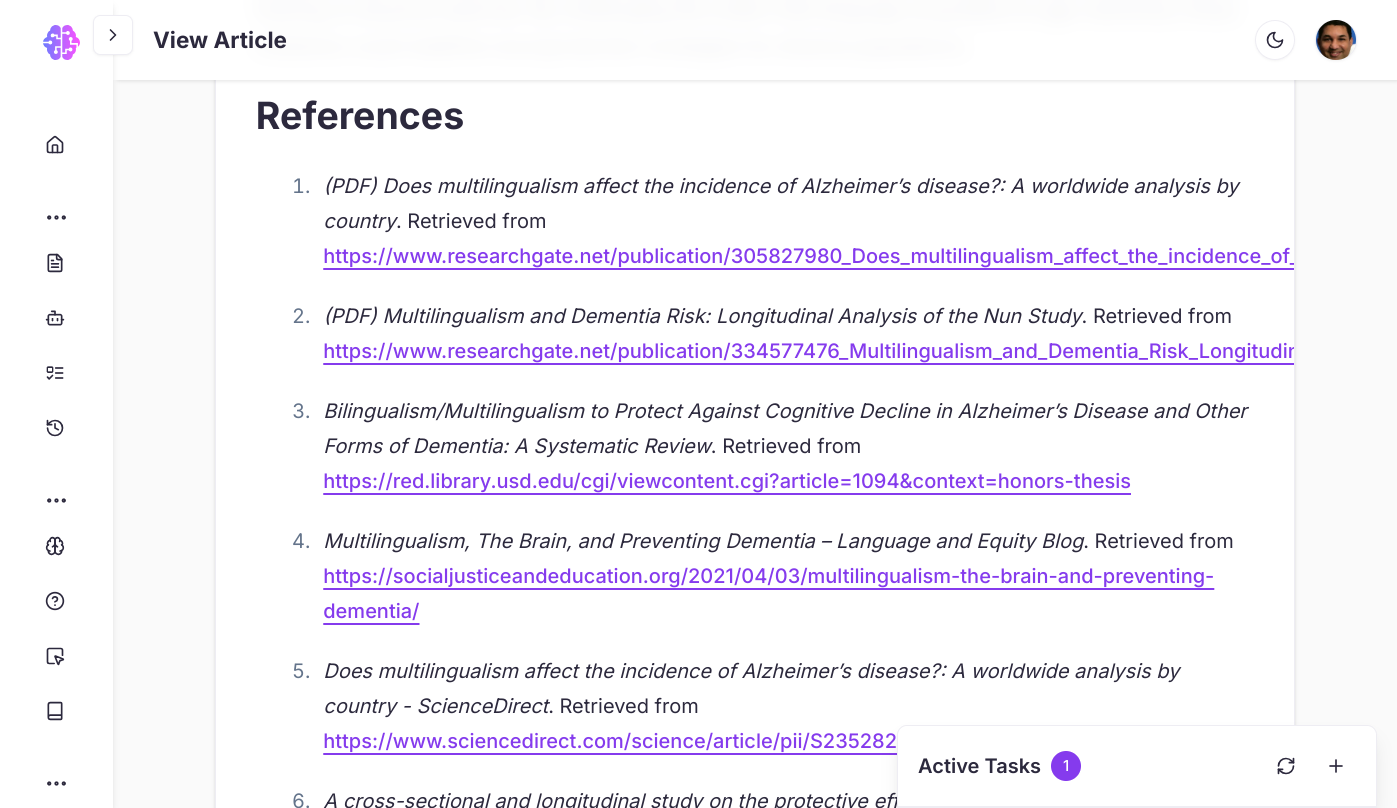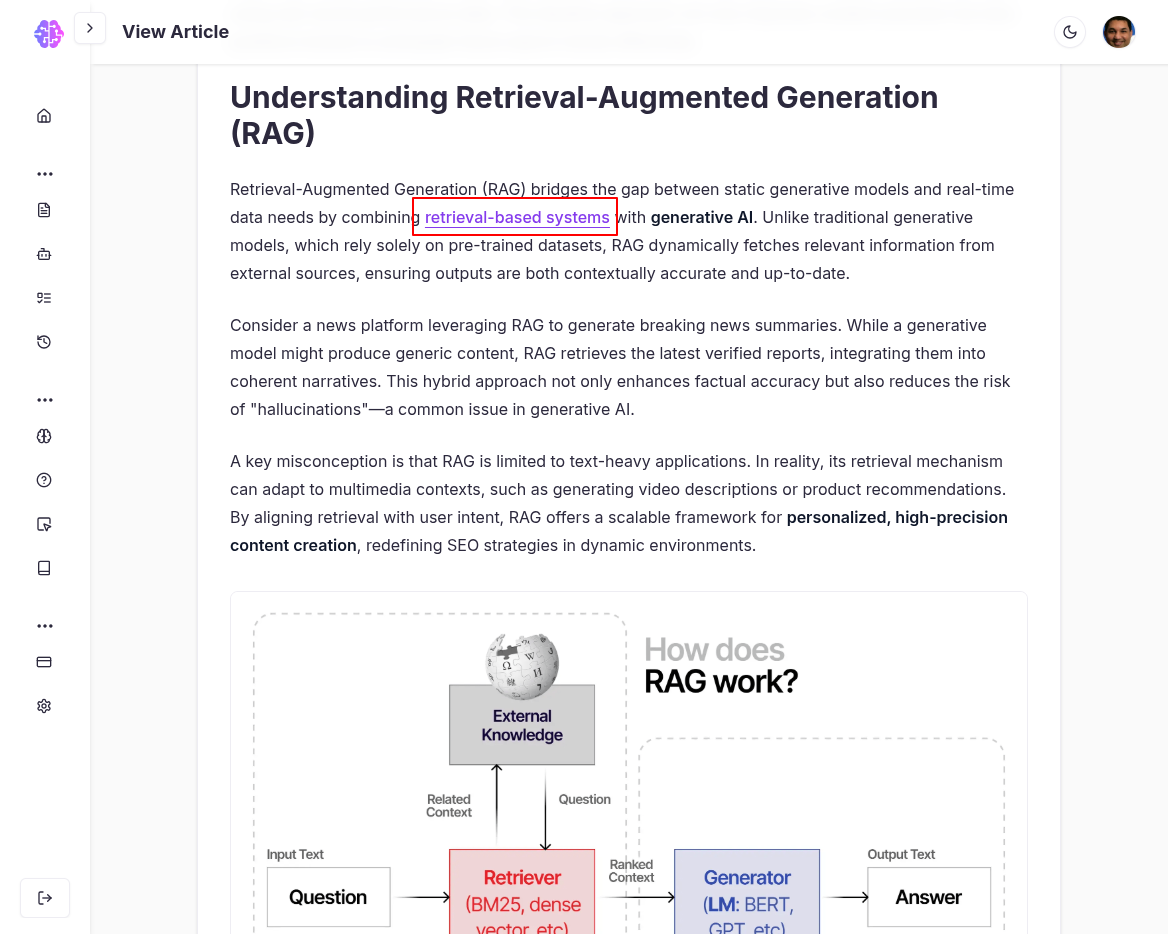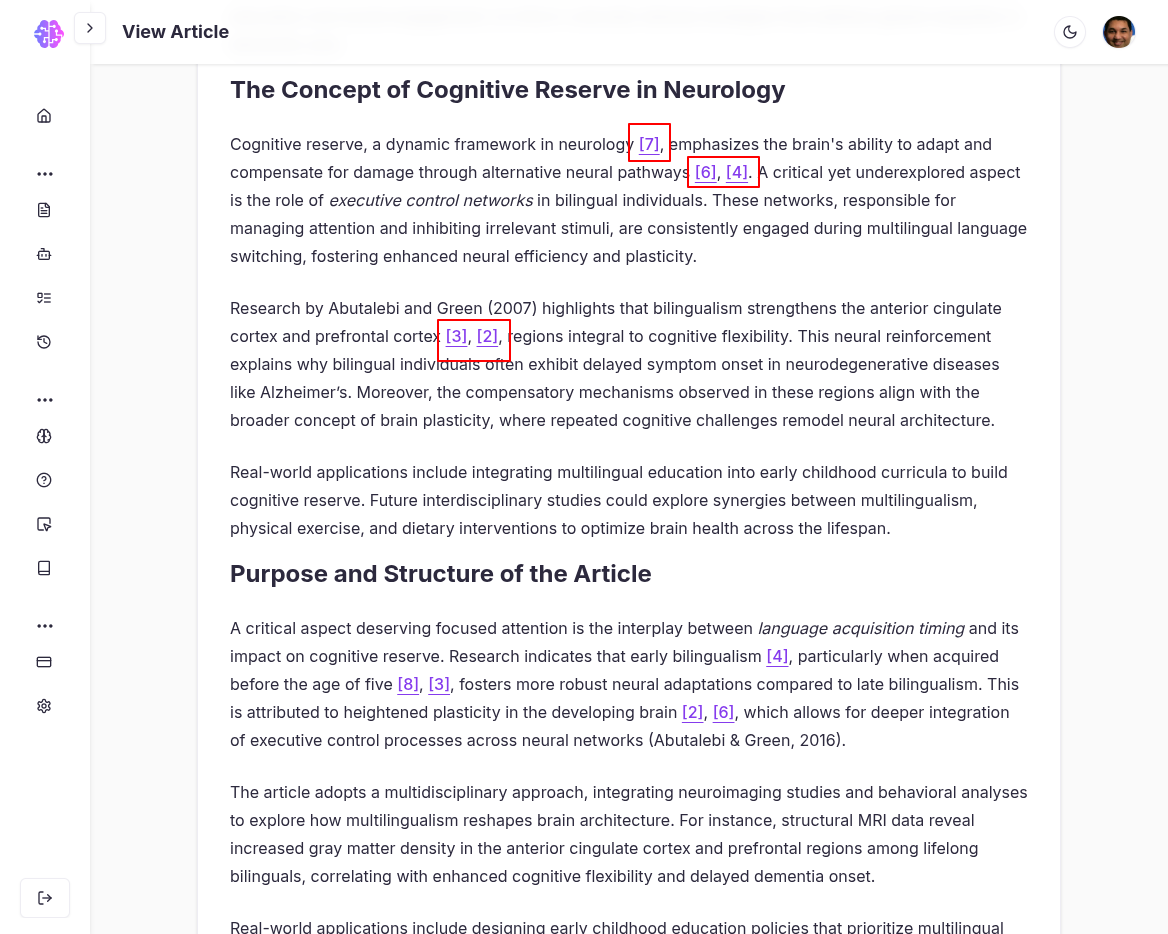AI Research Agent Citations : Introducing Intelligent Citation Linking
Today, I want to tell you about something we've built that I'm really excited about. It's a feature that solves a problem that's been bugging content creators and researchers alike: how to handle citations in different types of content.
We call it Intelligent Citation Linking, and it's going to change how you think about source attribution in AI-generated content.
The Problem We Needed to Solve
Here is a problem that customers brought to our attention. Imagine you're using CustomGPT.ai Researcher to create two different pieces of content.
The first is a blog post about artificial intelligence trends that needs to rank well in search engines.
The second is a research paper about machine learning algorithms that needs to meet academic standards.
These two types of content have completely different citation needs.
For the blog post, SEO best practices tell us to be selective with external links - too many can dilute your site's authority and hurt your rankings.
But for the research paper, you need to cite every single fact, often multiple times, with a proper bibliography at the end.
This created a real dilemma. How could one system serve both needs well? That's what we set out to solve.
How We're Making Citations Smarter
Here's what we've built: CustomGPT.ai Researcher now automatically understands what kind of content you're creating and adjusts its citation style to match exactly what you need.
Think of it like having a really smart research assistant who knows exactly how to format citations for different publications.
When you're writing a blog post, it knows to be selective with links, choosing only the most important ones and never repeating them.
When you're writing an academic paper, it switches gears completely, providing detailed, numbered citations like [1], [2], with a full bibliography at the end.

Let me show you how this works in practice.
A Tale of Two Documents
Let's say you're writing about recent advances in artificial intelligence. Here's how our system handles the same research differently based on your needs:
For a marketing blog post, it might write: "Retrieval-Augmented Generation (RAG) bridges the gap between static generative models and real-time data needs by combining retrieval-based systems with generative AI."

Notice how it cited "retrieval-based systems" but kept the linking minimal - exactly what you want for SEO-focused content.
Now, for an academic paper:
"Cognitive reserve, a dynamic framework in neurology [7], emphasizes the brain's ability to adapt and compensate for damage through alternative neural pathways [6], [4]."

See the difference? Every fact is cited, sources can be referenced multiple times, and there's a proper academic style that researchers expect.
The Magic Behind the Scenes
You might be wondering how this works. When you start a new project, our system looks at several things to understand what kind of content you're creating. It considers the topic you're researching, how you phrase your request, and what kind of output you're looking for.
It's like having a conversation with an expert who adjusts their language and style based on whether they're chatting at a coffee shop or presenting at a conference. Our system does this automatically for citations.
Geek Alert: It basically uses an advanced reasoning model like gpt-4o to classify the intent and type of content being generated. And then, based on the classifications, the citation methodology is adjusted.
What This Means for You
If you're a content marketer, you no longer have to worry about whether having too many citation links will hurt your SEO. The system automatically keeps things optimized while still maintaining credibility.
If you're an academic or researcher, you can trust that your content will meet scholarly standards without having to manually adjust citation formats or create bibliographies.
And if you're someone who creates both types of content? Well, that's where this really shines. You can use the same research process for everything you create, and the system will automatically adjust the citation style to fit your needs.
Making Your Life Easier
Here's a real example of how this makes a difference.
One of our users, a marketing agency, recently needed to create both a public blog post and a detailed research report from the same research.
In the past, they would have had to manually adjust all the citations between versions. Now, our system handled it automatically.
The blog post was SEO-friendly with strategic citations, while the research report had comprehensive academic citations - all from the same base research.
Looking Ahead
This is just the beginning of what we're building. We're working on making citations even smarter, with the ability to understand more content types and citation styles.
Imagine creating content that automatically adjusts its citation style for different academic journals, or perfectly balances SEO needs for different types of websites.
Frequently Asked Questions
How does it know what kind of content I'm creating?
What if it gets the style wrong?
Does this change how thorough the research is?
Can I switch styles after the content is created?
Will this help my content rank better?
Try It For Yourself
This new citation system is already live in CustomGPT.ai Researcher. Just start a new project, and you'll see it in action. If you haven't tried our platform yet, now's a great time to try it for free to see how it can transform your research and content creation process.
I'd love to hear your thoughts on this new feature and how you're using it. Drop me a line on LinkedIn and let me know what you think.
